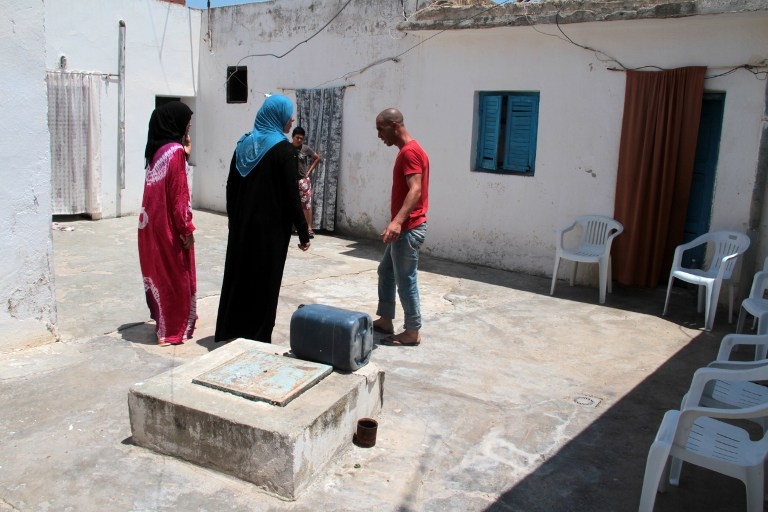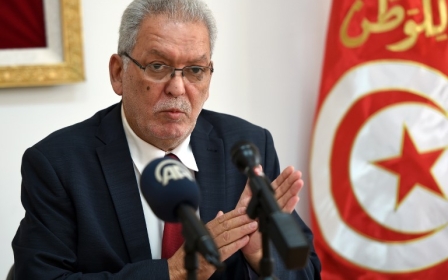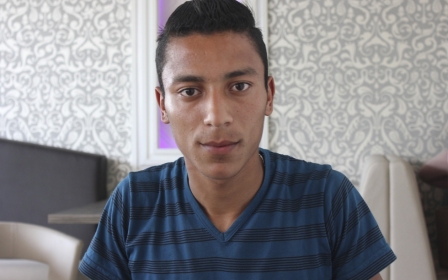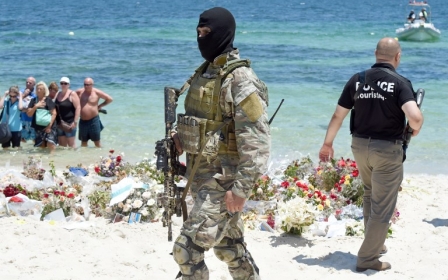What's leading some Tunisian students to radicalisation?

After a Tunisian student killed 38 tourists in Sousse in late June, the Tunisian government says it has carried out more than 700 operations to crack down on suspected "terrorists".
But as officials reiterate their commitment to combating militants and step up security at beaches and hotels, Tunisian student leaders say politicians have ignored dangerous signs of a rise in religiously inspired violence - and potential solutions - for years.
Leaders of the executive committee of the left-leaning anti-Islamist General Union of Tunisian Students (UGET) - which is different from its Islamist-leaning rival the General Union of the Students of Tunisia (UGTE) - say the 23-year-old who carried out the June beach rampage came to their attention three years ago when their organisation conducted a survey asking why fellow students were joining militant groups.
“We have known the guy - Seifeddine Rezgui - behind the attack for years now and we have a lot of information about him,” Ahmed Dhaouadi, a member of UGET's executive committee, told Middle East Eye.
“It’s unbelievable that the government is saying it was surprised at the attack and know nothing about the student behind it."
In 2011, after the Tunisian uprisings and the stepping down of president Zine El Abidine Ben Ali, an estimated 3,000 young Tunisians left the country to fight in Syria and Iraq, leaving the country's nationals among the largest groups of foreigners fighting in the ranks of IS.
The trend has left observers perplexed: why would young people in what is frequently referred to as "the Arab Spring’s only success story" have flocked to foreign battlefields?
According to Dhouadi, Rezgui, was a student at the Higher Institute of Applied Science and Technology in Kairouan, a region where what is perceived as radicalism is thriving. At the institute, Rezgui allegedly headed a cell of five members, affiliated with a Salafist militant group called Ansar al-Sharia(AS).
Rezgui attended a local mosque in Kairouan, one of 1,000 that were not under the control of the Ministry of Religious Affairs after the 2011 uprisings. By the end of 2014, the ministry had succeeded in bringing almost all 1,000 back under ministry control, Abdessatar Badr, the chief of staff of the Ministry of Religious Affairs told MEE in May.
Through the launch of the 2012 nationwide survey across 165 of Tunisia’s 194 universities and higher education institutes, Dhaouadi and other UGET leaders documented the main reason behind a phenomenon of rising extremism among university students in Tunisia.
The group collated information from at least 1,200 students across the country who travelled abroad to join militant groups in Syria, Iraq and Libya, namely al-Qaeda and the Islamic State (IS).
The survey also documented the cases of least 800 more students who expressed views sympathetic towards militant groups’ ideologies and a willingness to join their ranks.
Poverty and unemployment
The findings of the survey were presented on 28 May 2015 at a press conference in the Tunisian capital of Tunis, laying out a set of causes behind the rise in students joining militant groups abroad.
“The results show that there is strong presence for Salafist movements across universities, specifically in rural and poor areas which are isolated from urban development and services,” Dhaouadi told MEE.
The study found that the reasons most students have become militant are economic - including poverty, high unemployment rates, economic and social inequality and a general sense of hopelessness among young people.
“The prevalence of a culture of nepotism and a feeling of marginalisation among rural citizens who suffer from a lack of services and social inclusion has caused for an uptick in radicalism in non-urban centres,” said Dhaouadi.
Unemployment rates in Tunisia vary between 15 to 30 percent according to statistics produced by the National Tunisian Statistics Institute. According to the study, both unemployment and poverty levels have increased since the 2010 uprisings.
“[The] unemployment level has risen from 421,000 people in May 2010 to 700,000 in May 2015,” reports the study, noting that most unemployed Tunisians hold university degrees.
The study also cites the “absence of critical thinking” within curricula as an important reason behind the increasing popularity of militant ideologies among university students.
“Many young people joining militant groups abroad studied science-related degrees such as engineering or biology. This is certainly not the case among students in the humanities and social sciences, where a significantly smaller number have been inclined to join the ranks of militant groups,” said Dhaouadi.
“It is very clear to us that students in such fields are not trained to be critical of what they are presented with; instead they accept any concept they may stumble upon.”
Beyond unemployment and education gaps, however, a closer look into individual cases of young Tunisians who have joined IS shows much more personal experiences behind their radicalisation.
Furthermore, according to Habib Sayah, director of the Tunisian think tank Kheireddine Institute, the study is lacking as it assumes a causal relationship between socioeconomic conditions and radicalisation, without providing evidence to support this claim.
He says that while poverty and marginalisation create a fertile ground for extremism, they do not explain the whole story behind a phenomenon of rising militancy in Tunisia.
"The most important cause is the pull factor and the existence of a very structured organisation [Ansar al-Sharia] which adapted itself to socio-political conditions by exploiting, on a massive scale, the gaps in social and economic governance," said Sayah.
"Ansar al-Sharia grew exponentially from 2011 as it focused on addressing the grievances that stemmed from the revolution and had been rapidly ignored by the mainstream political structures and the state," he added referring to social, healthcare and security services the group provided the wider public.
Salafist militant groups
Many of the university students interviewed by the survey are affiliated, even if only ideologically, with Salafist movements, a branding which has been on the rise in Tunisia since the 2010.
The main movement attracting them is Ansar al-Sharia - a group established by a man called Abu Ayadh al-Tunisi after the 2011 uprisings, when he was released along with many other Islamist political prisoners held under Zine El Abidine Ben Ali’s rule.
According to Sayah, Ansar al-Sharia influenced many youths and attracted them to the 'Salafist jihadist' ideology or religious-based militantancy.
In 2012, Ansar al-Sharia called for the Islamisation of Tunisia’s media, education, tourism and commercial sectors at a national conference in Kairouan. Spurred by events including clashes between Ansar al-Sharia supporters and the security forces and the assassinations of two leftist politicians - Chokri Belaid and Mohamed Brahmi - which were both blamed on the Salafist group, the government cracked down on Ansar al-Sharia.
In 2013, the group was outlawed as a terrorist organisation and as result collapsed as an official group. While Ansar al-Sharia's leadership and chain of command, may no longer exist, their networks which remain present in Tunisia says Sayah.
And while the Sousse attacker Rezgui allegedly belonged to Ansar al-Sharia at some point - a group formerly more closely affiliated with al-Qaeda - the Sousse attack was claimed by IS.
Al-Qaeda and IS do not agree on fundamental theological and strategic issues, most importantly who is considered an apostate and therefore a target for the group.
According to Sayah, after the organisation's collapse and the exile of its leader Abu Ayadh to Libya - a primary reason behind Ansar al-Sharia's links towards al-Qaeda - many members became more inclined towards IS.
“When Abu Ayadh went into exile he lost control over debate within Ansar al-Sharia regarding the split over al-Qaeda and IS. Most of Ansar al-Sharia's members saw that IS's success on the ground was very appealing."
"Many ex-Ansar al-Sharia members seem divided, but a majority considers ISas the most credible alternative in Tunisia and many of the former group's leaders who went into exile in Syria and Iraq joined IS."
When the Sousse attack took place, Dhouadi says the student leaders who conducted the survey reiterated their concerns to the government, but their calls went unanswered.
“We have a lot of information about this [al-Shabab al-Islami] group and their networks among students. We presented our findings to the government and expressed our concerns, but unfortunately there was little response from them,” said Dhouadi.
Through the study, the union has devised a plan to address youth radicalisation in Tunisia which includes the establishment of nation-wide programmes to reintegrate young Tunisians and provide them a sense of hope and purpose, specifically in rural and deprived areas.
“The government must start with practical steps to resolve many young people’s feelings of social injustice and alienation which we believe drives them towards joining such movements," he said.
New MEE newsletter: Jerusalem Dispatch
Sign up to get the latest insights and analysis on Israel-Palestine, alongside Turkey Unpacked and other MEE newsletters
Middle East Eye delivers independent and unrivalled coverage and analysis of the Middle East, North Africa and beyond. To learn more about republishing this content and the associated fees, please fill out this form. More about MEE can be found here.




